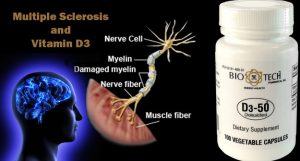Search Blog
Topics
alcohol allergic reactions alpha gal amylase aromatherapy bio-identical hormones breast cancer cancer carbohydrates chelation coffee critical care curcumin estrogen fatty liver folate folic acid hormone replacement therapy hospitalization hrt humidity inflammation lavender meat allergies menopause methylation migraine MTHFR natural killer cells nickel night sweats osteopenia ovarian cancer pain peri-menopause prevention progesterone rash setting boundaries sleep thiamine turmeric Vitamin D vitamin d weight loss
Sleep, hormone ratios and the peri-menopausal transition
I’ve often said that if I could only fix only one hormone driven problem encountered in the years leading into menopause, it would be to ensure a deep and restorative night’s sleep. While there is still much science does not know about how and why sleep is so critical to the human brain, each of us know that when we don’t…
Inflammation and the problem of chronic pain
Current studies suggest that up to 100 million of us here in the US have some form of chronic pain. This doesn’t always mean that the pain is there all the time, but rather that it is an ongoing problem for the person. The lasting results of trauma, episodic bouts of gout or migraine, low back, hip or knee arthritis, irritable…
Will that carb calorie make you fat? The answer may be right on the tip of your tongue.
There are few things in the dietary world that stir as much controversy as the carbohydrate (starch and sugar) content of one’s diet. Should it be low carb? Do they need to be low glycemic carbs? Should we mix carbs and protein in a meal? The more you read, the more confusing it gets. Now, to add to the complexity, we…
The Sweet Scent of Sleep
Although I’m not an expert in aromatherapy, I was recently re-reminded of the benefits of lavender as herbal therapy. Lavender has been cultivated for over 2500 years, and was used extensively by the Egyptians, Romans and Greeks for its cosmetic and antiseptic properties. Lavender is said to be beneficial for a number of indications, and over the years I’ve had patients…
Update on my favorite herb for managing inflammation
Turmeric, the root from which we get curcumin, is one of the most thoroughly researched plants used in herbal therapy. Its therapeutic properties have been the subject of over 5600 peer reviewed studies. Turmeric has been used in cooking for millennia. Remnants of turmeric powder have been found on cooking implements from Asia dated at over 4000 years old. Turmeric is…
Can Vitamin D help with multiple sclerosis?
Multiple sclerosis affects one out of a thousand people, almost 3 million worldwide, with more than 200 new cases diagnosed per day in the U.S. alone. It usually begins between the ages of 20 and 50, is twice as common in women as in men and is the most disabling neurological disorder in young adults. It is interesting that the incidence of…
Are there non antibiotic treatments for urinary infections?
Urinary issues are responsible for over 10 million medical office visits per year, and roughly half of all women will have meaningful urinary health issues sometime in life, including recurring infections (UTIs), inflammatory conditions such as interstitial cystitis, pelvic pain or frequency and urgency (gotta go, gotta go!), even without infection. Female urinary anatomy gets the short end Women are more…
Post-menopausal hormone support and eye health
Recent studies have demonstrated the benefits of estrogen support for several eye problems. This is not a surprise. Many of us offering post-menopausal hormone support in the past few decades have noted improvement in eye health with baseline estrogen support. As is true with progesterone and testosterone, these hormones are not just about conception and pregnancy, or even female specific…
What symptoms or conditions suggest a Vitamin D deficiency?
Are there symptoms for vitamin D deficiency? The last decade has seen a renaissance in our understanding of the many roles of Vitamin D in our well-being, with hundreds of studies defining ever more precisely its role in health and disease. Vitamin D could as accurately be called a hormone as much as a vitamin. It influences the calcium metabolism in…
Low Vitamin D3 correlates with mental decline
ASK THE DOCTOR: Are there Vitamin D Deficiency and cognitive associations? Recent research once again confirms that cognitive decline is associated with Vitamin D deficiency in older adults. A recent study of 382 men and women through the Alzheimer’s Disease Center in Sacramento, California found that Vitamin D deficient individuals suffered cognitive decline at a rate of two to three times…











